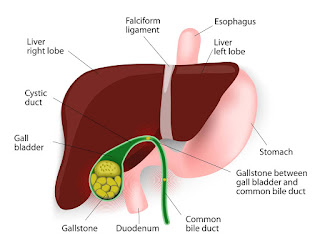Uterine Fibroids are the most common non cancerous tumors in women
of child bearing age. These uterine fibroids are also called Uterine
Leiomyomas or even myomas. Contrary to common fears, they do not
normally convert into cancer. Uterine fibroids may be single in number
or multiple. Most of the women don’t come to know that they have uterine
fibroids because they may not have any visible symptoms. They are
discovered only during a routine check up.
 Uterine fibroids are benign smooth muscle tumors present in the
uterus. These are made up of muscle cells of the uterus. The size of
fibroids varies a lot. They may be as small as a seedling. In some cases
they may become quite large, so much so that take up almost a complete
wall of the uterus. In extreme cases large uterine fibroids have been
known to push the uterus up till the rib cage. Usually large fibroids
push against the urinary bladder.
Uterine fibroids are benign smooth muscle tumors present in the
uterus. These are made up of muscle cells of the uterus. The size of
fibroids varies a lot. They may be as small as a seedling. In some cases
they may become quite large, so much so that take up almost a complete
wall of the uterus. In extreme cases large uterine fibroids have been
known to push the uterus up till the rib cage. Usually large fibroids
push against the urinary bladder.
A few of the factors that have been known in the incidence of uterine fibroids are –
In cases where there are symptoms, the development of symptoms varies from patient to patient. In some patients, the symptoms are very slow to develop. It takes years to develop the symptoms. In some other cases, the symptoms develop very fast in just a couple of months.
What are Uterine Fibroids
 Uterine fibroids are benign smooth muscle tumors present in the
uterus. These are made up of muscle cells of the uterus. The size of
fibroids varies a lot. They may be as small as a seedling. In some cases
they may become quite large, so much so that take up almost a complete
wall of the uterus. In extreme cases large uterine fibroids have been
known to push the uterus up till the rib cage. Usually large fibroids
push against the urinary bladder.
Uterine fibroids are benign smooth muscle tumors present in the
uterus. These are made up of muscle cells of the uterus. The size of
fibroids varies a lot. They may be as small as a seedling. In some cases
they may become quite large, so much so that take up almost a complete
wall of the uterus. In extreme cases large uterine fibroids have been
known to push the uterus up till the rib cage. Usually large fibroids
push against the urinary bladder.What are the causes of Uterine Fibroids
The exact cause of uterine fibroids is unknown. What is known is that the fibroids develop when the cells in the muscles of the uterus begin to overgrow. The growth of the uterine fibroid is influenced by the presence of the hormones estrogen and progesterone. The level of these hormones is the highest during the child bearing age. Therefore the incidence of uterine fibroids is more during this time. Once menopause occurs, the levels of estrogen and progesterone decline and therefore the fibroids start shrinking on their own. In some cases, the fibroids disappear completely after menopause.A few of the factors that have been known in the incidence of uterine fibroids are –
- Obesity- Being overweight is a major risk factor in the development of uterine fibroids.
- Heredity- If one or more of your family members like your mother or sister has or had fibroids, the chances of your having fibroids are much higher.
- Race- Black women are more likely to have fibroids and that too at a younger age.
- Hypertension- Presence of high blood pressure can also predispose you to fibroids. Having a diet high in red meat content and low in fruits and vegetables may contribute to fibroids. At the same time intake of alcohol may also increase risk of uterine fibroids.
- Vit D Deficiency- The deficiency of Vit D may also increase your risk of having uterine fibroids.
- PCOS – Presence of Polycystic Ovarian Syndrome can also predispose you to uterine fibroids.
- Diabetes- It is another common predisposing factor.
- Hypertension- Presence of high blood pressure can also predispose you to fibroids.
Symptoms of Uterine Fibroids
Most of the uterine fibroids, particularly the smaller ones are asymptomatic. This means that there are not too many symptoms. One cannot often diagnose or point towards presence of fibroids from clinical observation. More often than not, small fibroids are found accidentally during routine ultrasounds.In cases where there are symptoms, the development of symptoms varies from patient to patient. In some patients, the symptoms are very slow to develop. It takes years to develop the symptoms. In some other cases, the symptoms develop very fast in just a couple of months.
The common symptoms of uterine fibroids are-
- Abnormal bleeding during menses- The most common symptom is a change in the normal menstrual bleeding pattern. In some cases, the bleeding may be profuse and protracted. This may last for more than a week. In yet some other cases, the bleeding may be intermittent and start mid cycle.
- Pain during menses- Another common symptom is the presence of pain during menses. This pain may be felt in the lower back, lower abdomen and pelvis.
- Pain during intercourse – There may be pain during intercourse.
- Infertility – In some cases, more so when the fibroids are large, there may be infertility. In other cases, there may be miscarriages.
- Fullness in the lower abdomen – Some females may even feel fullness or bloatedness in the abdomen.
- Anaemia- Profuse bleeding may cause anaemia.
















